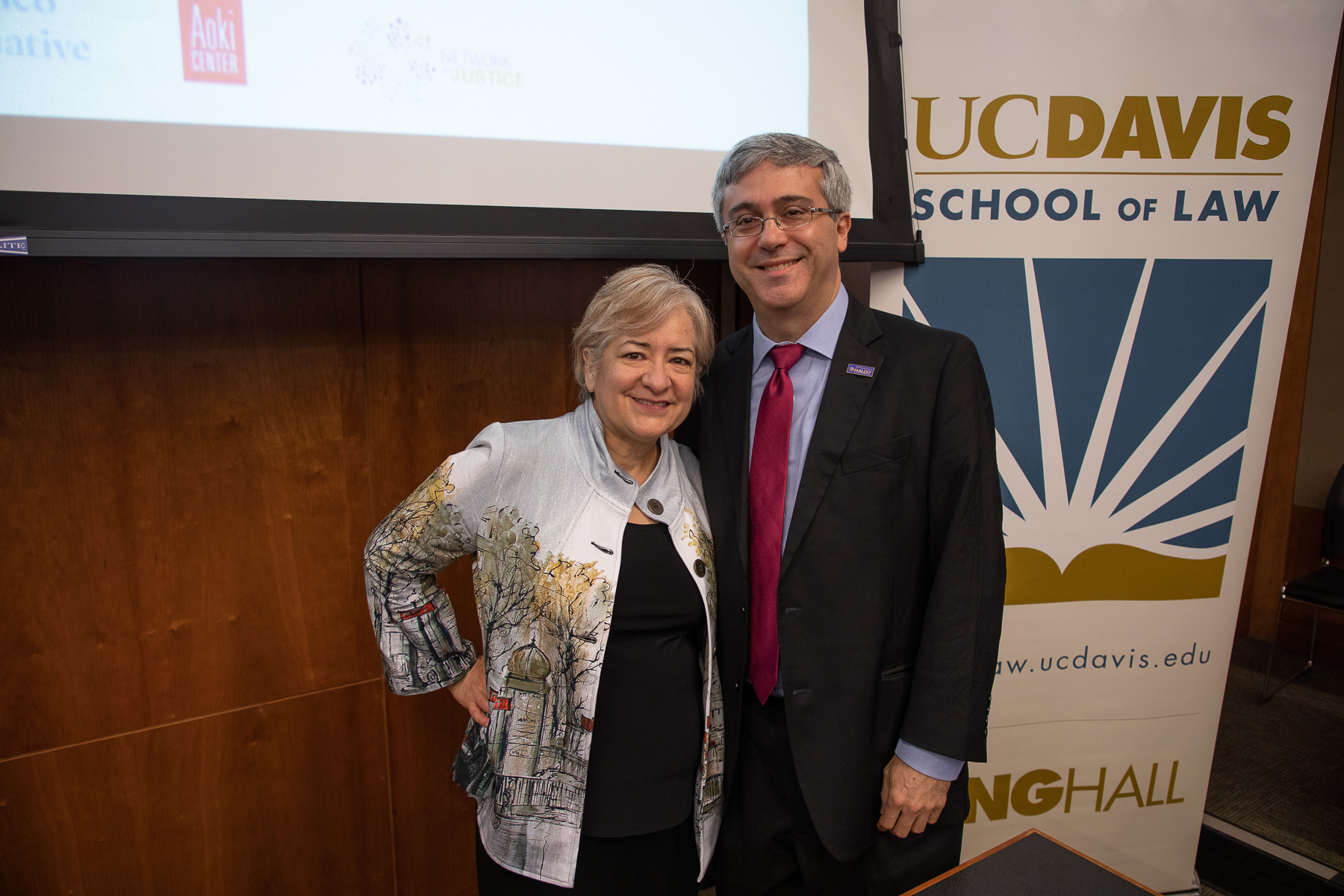UC Davis Law Review symposium on Proposition 187

UC Davis Law Professor Leticia Saucedo with Tom Saenz of the Mexican American Legal Defense and Educational Fund.
Last week, the UC Davis Law Review hosted a symposium marking the 25th anniversary of the passage of Proposition 187. The Law Review is celebrating the publication of its 50th volume this year.
An esteemed array of scholars, attorneys and policy experts shared their thoughts on the legacy of Proposition 187, an initiative passed by California voters in 1994 that sought to strip undocumented immigrants of public benefits, including a public education. The speakers included Tom Saenz, President and General Counsel of the Mexican American Legal Defense and Educational Fund, Professor Rachel Moran (UC Irvine and former Dean, UCLA School of Law), Rose Villazor (Rutgers), and many more.
The full schedule can be found here. https://lawreview.law.ucdavis.edu/symposia/2019-fall-nov/schedule.html
Rebecca Brandel and Alice Park of the UC Davis Law Review, and Professor Leticia Saucedo, faculty sponsor of the symposium, deserve recognition for organizing a first-rate event.
I opened the symposium with a welcome and introductory remarks. Proposition 187 was one of the most controversial California ballot initiatives ever. Dubbed the “Save Our State” initiative, it preyed on fears about the state’s changing demographics and then-wobbly economy. Proposition 187 sought to bar undocumented immigrants from receiving state services. It tried to turn teachers into informants for immigration authorities. It made immigration enforcers out of the police. As often is the case, California was ahead of its time. Prop. 187 was perhaps the first anti-sanctuary law. In the new century, Arizona, Alabama, South Carolina, Georgia, and other states passed similar laws.
Prop. 187 sparked protests in the months before the November 1994 election. Activists, including high school students, marched in the streets, decrying the initiative. But Proposition 187 passed in November by a 2-1 margin, in a racially polarized vote. Republican Gov. Pete Wilson, an ardent supporter of 187, rode its anti-immigration sentiments to a second term. His infamous television spot demonized shadowy immigrants, with little left to the imagination about which immigrants he was talking about: “ they keep coming.” The language was subtle compared to language used by the current administration.
The court challenges, which now might seem inevitable--but did not then--were immediate. Blocked by an injunction, Proposition 187 later was invalidated. The case later was settled. Although never taking effect, the initiative’s impact continues.
The battle against the initiative had inspired a wave of newly mobilized voters and activists including many Latinx voices. Protesters became policy makers: Kevin de León, who organized Proposition 187 protests, would serve as the California state Senate President two decades later.
It would be wonderful if today’s event were simply a vehicle for recounting tales of progress and we simply talked about the bad old days. But as we all know challenges to immigrant rights are here today. “They keep coming” leaves a bit to the imagination: calling out Mexicans as criminals and rapists does not. Last week, the Supreme Court heard oral arguments about DACA, a policy that affects communities similar to those targeted by Proposition 187. In short, this symposium could not have been more timely.
